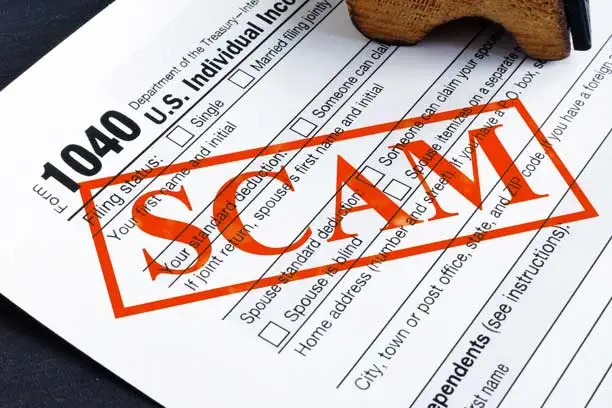How to Avoid IRS Tax Scams


Many of us have gotten this call: It’s the IRS on the line, there’s something wrong with your taxes and you might be in big trouble if you don’t do what they say right now. The person on the other end of the line can be very convincing.
But don’t be fooled. Think twice before handing over personal information like your address, birthdate or Social Security Number (SSN) to resolve the issue. There’s a very good chance it’s a scam artist, not the IRS or some other government agency on the other end of the line.
IRS scam calls are rampant. They can range from phone calls asking victims for “missing” SSNs (which fraudsters use to open credit card accounts) to sending fake tax bills and demanding payment. Sometimes scammers will promise that a big check is on the way if you follow their instructions or will offer to resolve outstanding tax debt. IRS scams by mail, email, phone and even social media lure victims into giving up personal details or opening their pocketbooks.
Each year, the IRS shares its “Dirty Dozen” list on how scammers work. Make sure to check it out before filing your next return, and in the meantime follow these tips to avoid falling victim to IRS phone scams.
No one wants to be on the wrong side of the IRS, but it’s OK to hang up the phone if an “IRS representative” makes threats after you refuse to hand over information. This tax scam is easy to fall victim to because scammers typically use real people to handle conversations, instead of robocalls. The IRS does not call or email taxpayers; official notifications are always sent through the postal mail. All other methods of communication should be treated as spam.
Emails can open you up to phishing scams — another common IRS tax scam. Sometimes the email will look official, but a link within the email will actually lead to a harmful website, a computer virus or an official-looking website designed to harvest your personal information. So ignore emails with links to check the status of your refund, which could lead to a computer virus, and go to the IRS website instead. The Where’s My Refund? tool is a safe way to determine when a check or direct deposit will arrive. If you’re having trouble, your accountant can review your return to see if information, like a signature, is missing.
Don’t make it easy for tax scammers to access your personal information. Shred any documents with your address, birthdate or SSN. Be sure to use strong passwords to protect your online accounts. To combat tax fraud, the IRS created stronger standards for online tax programs, including passwords with eight-plus characters and a combination of uppercase and lowercase letters, numbers and special characters. But don’t rely on those standards: take action to shield your information from fraudsters.
Avoiding tax scams starts with being aware of red flags from the start. Website addresses that don’t match a website name, for example, are warning signs of fraud. Keep an eye out for websites with names that are slightly misspelled, too. Common sense should also prevail: Scammers who insist that tax debts be settled immediately with a prepaid debit card or iTunes gift card should always be ignored. The IRS never demands immediate payment, and never requires such specific methods of payment.
The tax code is ironclad, so promises of larger refunds, tax shelters and overseas accounts to avoid tax debt should be immediate warning signs of a scam. Fraudsters will make wild promises to get you to hand over your SSN, account numbers and other information that can be used to steal your identity or access your bank accounts.
If you receive questionable emails, phone calls or social media messages, or fall victim to a tax scam, file a report with the IRS as soon as possible. It can be embarrassing to realize you’ve been scammed, but reporting the fraud increases the chance of recovering your money and helps protect other people like you from falling prey, too. The IRS also posts information about known scams on its website; check it out to learn more about what to watch for. The more informed you are, the less likely you’ll fall victim to a tax scam.
Discuss Identity Theft Protection with your Farm Bureau agent. That way, if your identity is stolen — which can happen to anyone — it will be easier to regain control of your identity and clean up the damage.